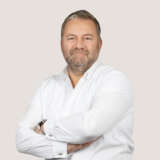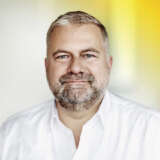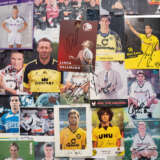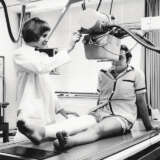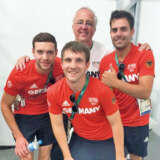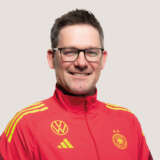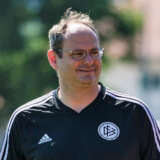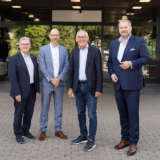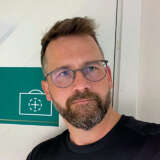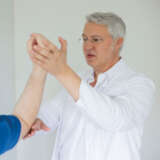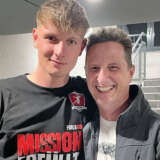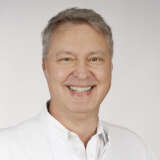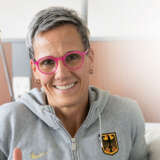“The Olympics are an experience you will never forget.”
As the team doctor for the sport shooters, Chief of Conservative Orthopedics Dr. Stefan Nolte is right in the thick of things when sporting history is made.
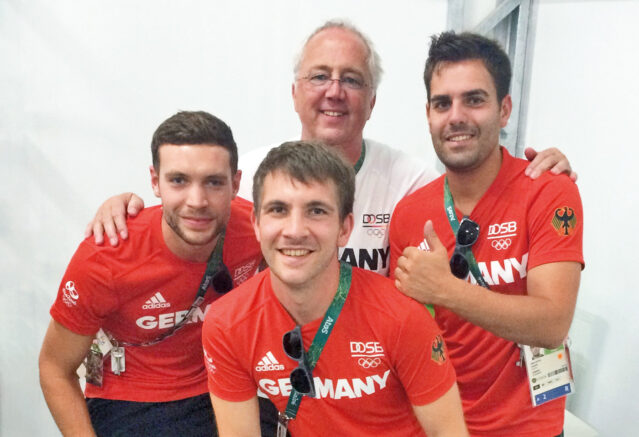
Photo: private
Have article read aloud
The Olympic Games are a dream for many athletes. But this major sporting event is also a formative experience for the people who accompany them on this journey. For Dr. Stefan Nolte, team doctor for the German Shooting Sport Federation and chief of conservative orthopedics at the Deutsches Wirbelsäulen- und Skoliosezentrum at the Sportklinik Hellersen, the Olympics have long been an integral part of his professional career. He has been looking after the shooters of the German Shooting Federation for over 25 years and has accompanied them to numerous international competitions. His Olympic stations range from Athens 2004 to London 2012 and Rio de Janeiro 2016 to Paris 2024. This makes him one of the most experienced German team doctors in international sport. In this special edition, the association doctor reports on his duties in the Olympic environment and on unforgettable moments on the international stage.
Dr. Nolte, you have been supporting sport shooters for many years. Looking back, what makes this task so special for you?
Dr. Stefan Nolte: The Olympic Games are an exceptional event in every respect. I first took part in Athens in 2004, and even then I sensed how unique the atmosphere was. The world's best athletes gather here, all highly focused and at the same time full of emotion. It has been a privilege for me to accompany the sport shooters for over 25 years. The trust that has developed over such a long period of time is a gift.
What exactly will your role be at the Olympic Games?
Dr. Stefan Nolte:
I am the doctor who is always there – even when there is nothing to do. I prefer it when no athletes are injured or ill. But of course, there are stress-related complaints, overload syndromes, or minor infections that need to be treated. It is important for athletes to know that there is someone at their side who knows them, takes their concerns seriously, and gets them back into shape quickly.
How does medical work at the Olympics differ from your everyday work at the Sportklinik Hellersen?
Dr. Stefan Nolte: Essentially, it's similar, because we also treat many athletes with orthopedic problems at our clinic. The difference lies in the environment and circumstances. At the Olympics, for example, the issue of doping is always present. Since we have to be extremely vigilant here, every medication is checked meticulously. And then there is the pressure that athletes are under. Medical knowledge alone is not enough. Often, I am simply a listener, someone who reassures and instills confidence.
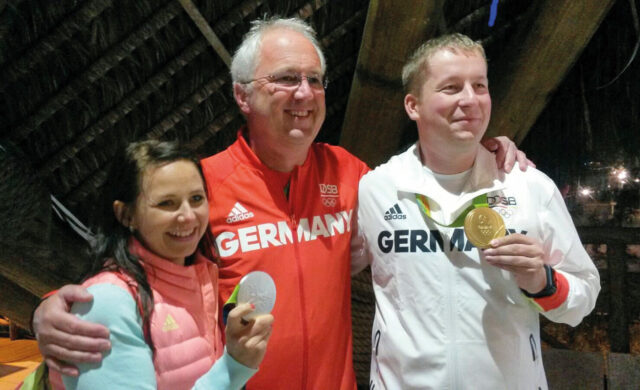
Photo: private
Are there any moments that have stayed with you in particular?
Dr. Stefan Nolte: Rio 2016 was a highlight. Our shooters won three gold and two silver medals. In Paris 2024, it was Florian Peter who competed in an Olympic final and narrowly missed out on a medal. Moments like these are unforgettable because you experience the heart-pounding excitement and tension firsthand. I sat in the audience and cheered him on until the very last second.
You talk about the Olympic spirit. What does that mean to you personally?
Dr. Stefan Nolte: It's hard to put into words. Being in the Olympic Village, meeting people from all over the world, athletes who have dedicated their lives to this moment – that's something you can only experience at the Olympics. It's a feeling of community, but also a strong motivation to give your best, whether on the field or in the medical team.
The Sportklinik Hellersen has been closely associated with competitive sports since its foundation. What role does this play in your everyday life?
Dr. Stefan Nolte:
The clinic was founded after World War II to provide care for athletes who otherwise had no insurance coverage. This idea continues to shape us today. From shooters to cyclists to soccer players, we have been caring for athletes from various disciplines for decades. This is part of our identity and makes us a special partner for competitive sports.
“It's a feeling of community, but also a strong motivation to give your best, whether on the field or in the medical team.”
Chefarzt Dr. Stefan Nolte
Team doctor for the German Shooting Sport Federation
Paris was your fourth Olympic Games. Do you think it will be your last?
Dr. Stefan Nolte:
I don't know yet. The Olympics are always an unforgettable experience. But at some point, the time comes to pass on the baton. Whether I'll be there again in Los Angeles in 2028 remains to be seen. One thing is certain: every competition was an experience I wouldn't want to have missed.



